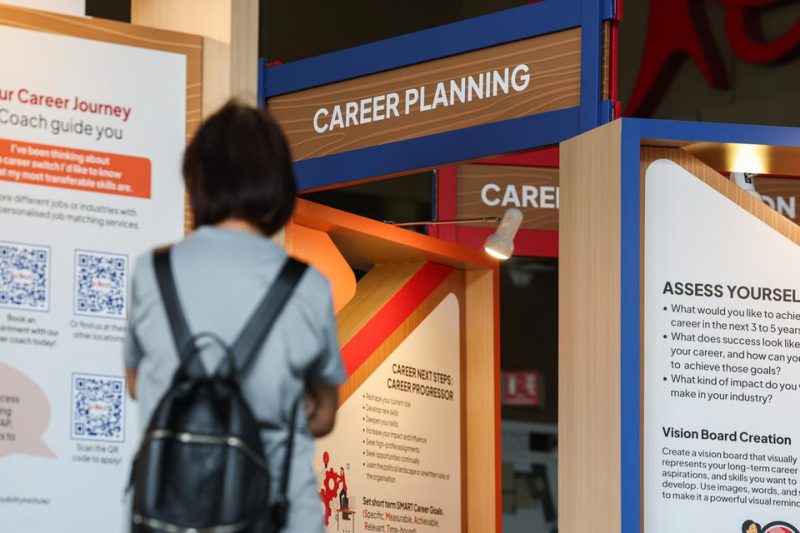SkillsFuture said the tool can be used to supplement resumes and enhance online job applications with the provision of verified records
Image credits: ST PHOTO: BRIAN TEO
SINGAPORE – An online career and skills planning tool by SkillsFuture Singapore (SSG) has been used by 315,000 Singaporeans as at April 30.
Launched in November 2024, the Careers and Skills Passport consolidates information about an individual’s career and skills from government-verified sources in one centralised and secure location, before the information is shared with current and potential employers.
The SSG said this tool can be used to supplement resumes and enhance online job applications with verified records.
Users can choose which records they wish to share with partnering online job portals, such as Jobstreet and FastJobs. They can also generate a shareable link of their profile and share it directly with potential employers.
To date, 4,900 users have shared data from their Careers and Skills Passport.
Developed in collaboration with the Ministry of Manpower (MOM), Ministry of Education (MOE) and Government Technology Agency, the passport has four key components.
The employment section contains verified data from the Central Provident Fund Board and MOM, such as employer name, employment period and occupation.
The skills section contains an overview of verified skills from the user’s certifications and from employer validation. Users can also add skills that they acquired on their own.
The third section contains academic records from the Singapore Examinations and Assessment Board and institutes of higher learning (IHLs) supported by the MOE. These include the Institute of Technical Education, polytechnics, autonomous universities and the arts institutions.
The final section contains verified professional training records, such as certifications from the Singapore Workforce Skills Qualifications and other SSG-funded courses. Similar to the skills section, users can also add their own certification records.
The Careers and Skills Passport is one of the initiatives by SSG, which marks its 10th anniversary in 2025, to encourage Singaporeans to upskill.
Held at the Four Seasons Hotel, the anniversary event on May 23 was attended by Prime Minister Lawrence Wong, Education Minister Chan Chun Sing, Manpower Minister Tan See Leng, and Minister of State for Education and Manpower Gan Siow Huang.
About 300 education, enterprise, union and industry partners were also in attendance.
The event also featured a panel discussion with individual, employer, union and government representatives about how the SkillsFuture movement provides opportunities to upskill and stay competitive.
As part of the 10th anniversary, SSG and Workforce Singapore will roll out a series of initiatives throughout the year.
These include the SkillsFuture Jobseeker Support scheme, which aims to provide temporary financial support of up to $6,000 over six months to lower- and middle-income job seekers who are still unemployed.
The Centre for Skills-First Practices will be launched by SSG and the Institute for Adult Learning in the fourth quarter.
Over the years, SkillsFuture initiatives have been expanded to cover over 28,000 courses, ranging from full qualifications to short courses, offered by a training sector that includes IHLs and private providers with close links to industry.
More than 500,000 Singaporeans – a fifth of the workforce – undergo training every year.
Since the SkillsFuture movement’s inception in 2015, employer participation has also doubled from 12,000 companies to 24,000 in 2024.
The number of employees supported by their employers for SSG-supported training also increased from 160,000 in 2015 to 241,000 in 2024.
Mr Tan Kok Yam, chief executive of SSG, said that in the next 10 years, the SkillsFuture movement will have to “level up” its support to Singaporeans, and give workers the tools and the confidence to thrive in an increasingly unpredictable world.
“Under SkillsFuture, we will encourage individuals to be mindful of their career health, raise the quality and relevance of learning, and help employers hire by skills and invest in their people,” he said.
Elisha Tushara is a correspondent at The Straits Times, specialising in Singapore’s education landscape.
By: Elisha Tushara
Originally published at: The Straits Times





